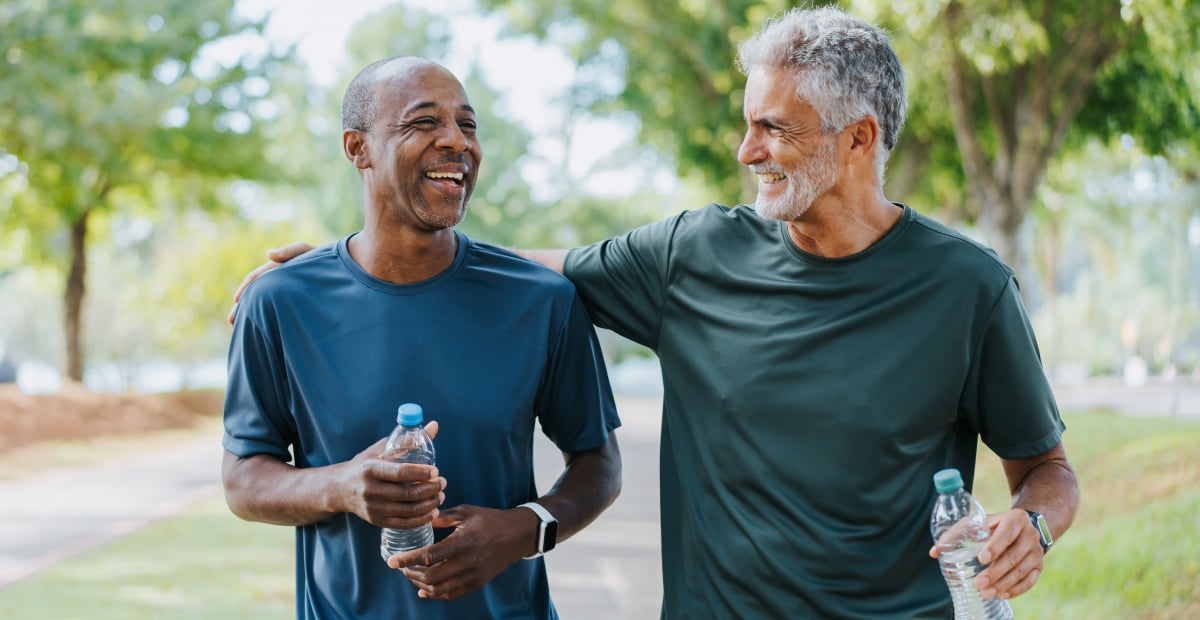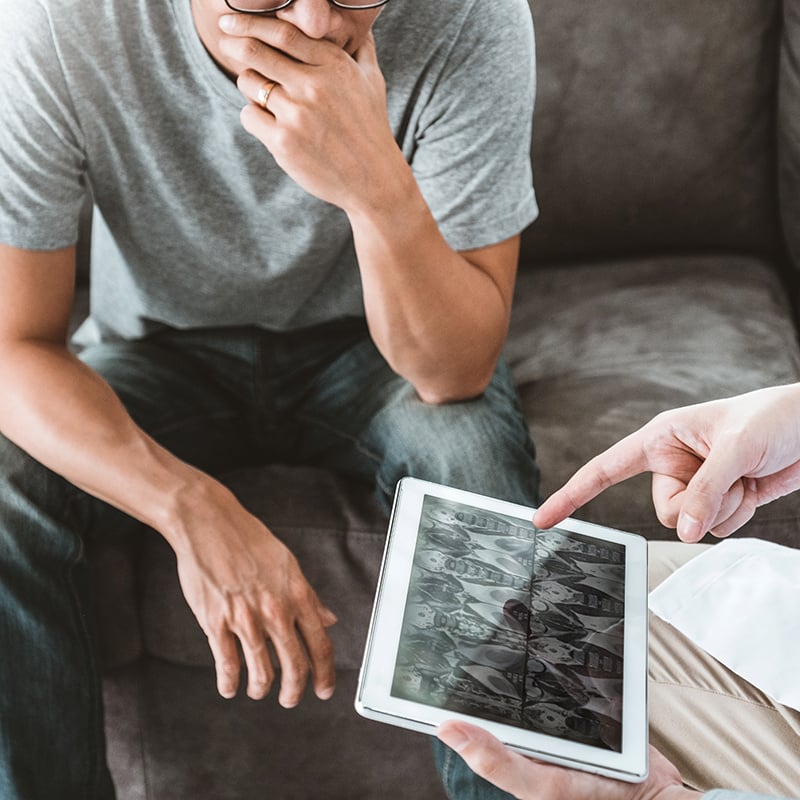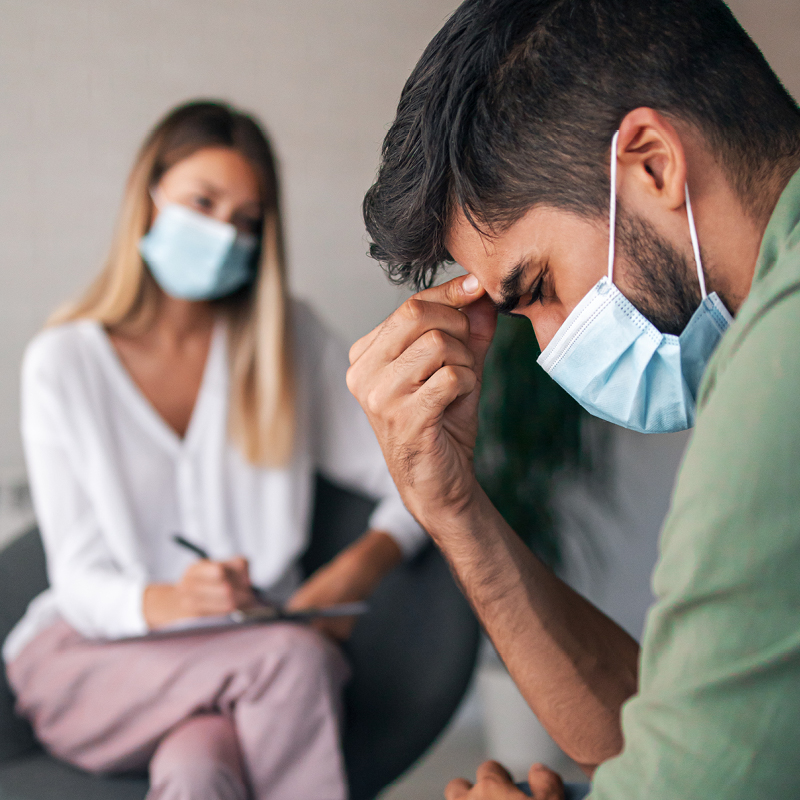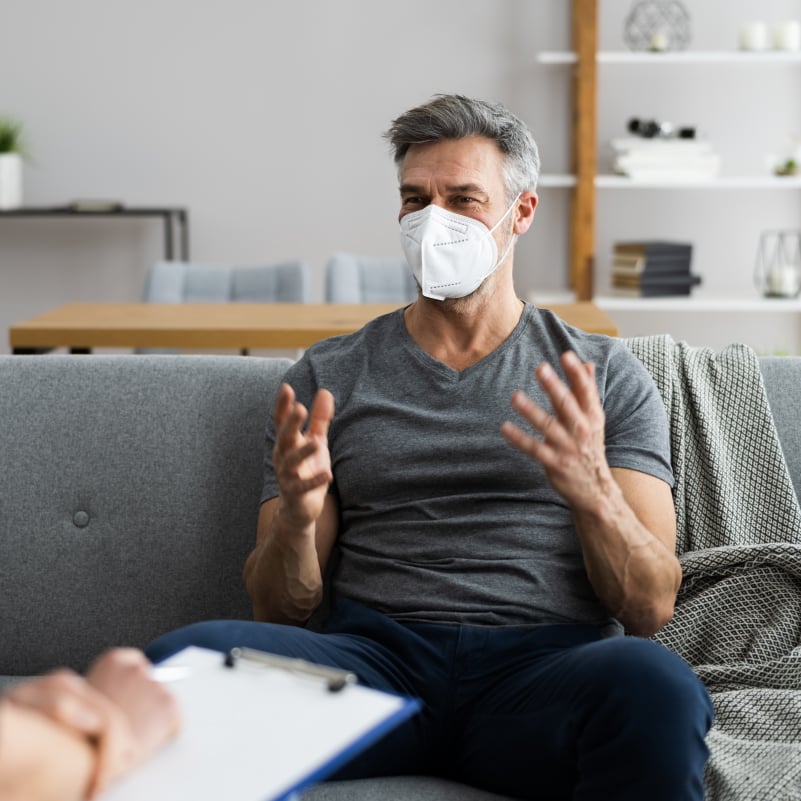Before the COVID-19 pandemic began, roughly half of all U.S. adults reported feeling some amount of loneliness. In May 2023, Vivek H. Murthy, MD, who serves as Surgeon General of the United States, released a critical report titled “Our Epidemic of Loneliness and Isolation”, showing how the problem has deepened in the years since the beginning of the pandemic.
Men, in particular, experience more challenges with loneliness compared to other adults. Research published in a recent American Perspectives Survey shows 27 percent of men said they have at least six close friends – half the number compared to three decades ago. Fifteen percent of men reported having no close friends at all, compared to 10 percent of women.
Matthew Drury, LMSW, is the program coordinator for the Behavioral Health Network at Rochester Regional Health and explores what is driving male loneliness – and what they can do to reach out.
Loneliness affects our health
Men tend to live silently with feelings of loneliness instead of divulging them. Of the men polled in the American Perspectives Survey, just 30 percent say they have had a private conversation with a friend in the past week during which they shared their personal feelings.
Living with a sense of loneliness and isolation affects our health – both physical and emotional. The Surgeon General’s report shows isolation and loneliness are “associated with a greater risk of cardiovascular disease, dementia, stroke, depression, anxiety, and premature death.”
Research suggests a lack of social connection raises a person’s risk for premature death – the equivalent of smoking as many as 15 cigarettes a day.
Alongside long-term risks like the ones listed in the report, loneliness manifests itself in other immediate forms including:
- Fatigue
- Lack of motivation or energy
- Struggling to recover from colds or other common illnesses
“The body and mind are connected when it comes to health,” Drury said. “If a person’s mental health is poor, then physical symptoms will align with their mental health, as well.”
Building relationships, one step at a time
Creating a healthy network of good friends and enduring friendships to combat loneliness happens over time. It’s important to remember that overcoming loneliness and isolation comes in small steps. This can begin in a few different ways.
Start close: If a man has a good relationship with their family, he should consider reaching out to a parent, sibling, or cousin to spend time together. For example, if a family birthday is coming up, agree to go to a gathering instead of declining the invite.
Pick up a hobby: Engaging in a hobby that allows someone to be social can be a good way to ease into a friendship. It doesn’t matter if the hobby is completely new or a revisited one; as long as it involves other people being together, it is a good step forward.
Do something active: Everyone’s idea of being active is different. Whether it’s running or fishing or walking through a park, men engaging in an activity side by side helps to break the ice. Most men have an easier time connecting if they’re actively doing something side-by-side, instead of sitting at a table talking with one another.
Shop at a store: The convenience of online shopping can provide instant satisfaction, but choosing to visit a local store in person instead of buying the item through the Internet can be helpful in reducing isolation. Even quick, informal interactions can boost a person’s mood and interpersonal skills.
Talking to a professional
Amid the pandemic, people shifted toward working from home. While this change had its benefits, people also missed out chances to connect with one another in-person, like informal chats or seeing people in passing.
Social connection is just as important as having good nutrition, getting adequate sleep, exercising regularly, and other forms of health maintenance.
If someone is wrestling with overwhelming feelings of isolation or loneliness, they can talk with their primary care provider or therapist, or a trusted friend or family member.
“Feeling lonely or isolated is more common for men compared to women,” Drury said. “More than likely, if a man chooses to reach out to a friend or acquaintance, the person to whom they are reaching out will feel relief because they are experiencing the same feeling. It may feel awkward or too personal, but in the end, both people have that sense of emotional relief.”









